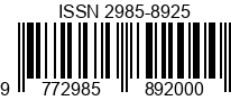Tindak Pidana Perdukunan Tinjauan Pasal 545, 546, 547 KUHP dengan Pasal 252 KUHP 2023
DOI:
https://doi.org/10.54298/tarunalaw.v2i01.153Keywords:
witchcraft, punishment, penal codeAbstract
In Indonesia, the practice of black magic is not new. Although the practice is opposed to religion because it associates partners with God, it is still carried out by people who want to achieve their goals practically or harm someone. In the legal regulations in the Criminal Code, the practice of witchcraft is regulated in Articles 545, 546 and 547. In reality, this article is rarely used as a legal basis for the arrest or sentencing of black magic practitioners. The article on black magic has been discussed for a long time in the draft Bill of the Penal Code, there are many pros and cons about this article on shamanism which is called the’pasal santet’. In 2023 the new Penal Code was passed and the article on witchcraft was regulated in Article 252. with the legal research method, this research focuses on examining the normative law that applies in Indonesia with descriptive analysis until this research concludes that the act of shamanism is a disturbing thing, articles 545, 546, and 547 are considered inappropriate in dealing with this, so that article 252 is needed as legal certainty.
References
Arthani, Ni Luh Gede Yogi. “Praktek Paranormal dalam Kajian Hukum Pidana di Indonesia.” Jurnal Advokasi 5, no. 1 (2015): 29391.
“Arti kata dukun - Kamus Besar Bahasa Indonesia (KBBI) Online.” Diakses 24 Juni 2023. https://kbbi.web.id/dukun.
Astiti, Ni Kadek Ayu Seri. “Eksistensi Ilmu Hitam dan Faktor Penghambat Penegakan Dalam Hukum Pidana.” Sabda Justitia 1, no. 1 (15 Oktober 2021): 24–28.
Faisal, Faisal, Derita Prapti Rahayu, Anri Darmawan, Muhamad Irfani, dan Ahda Muttaqin. “Pemaknaan Kebijakan Kriminal Perbuatan Santet dalam RUU KUHP.” Jurnal Pembangunan Hukum Indonesia 5, no. 1 (31 Januari 2023): 220–32. https://doi.org/10.14710/jphi.v5i1.220-232.
———. “Pemaknaan Kebijakan Kriminal Perbuatan Santet dalam RUU KUHP.” Jurnal Pembangunan Hukum Indonesia 5, no. 1 (31 Januari 2023): 220–32. https://doi.org/10.14710/jphi.v5i1.220-232.
Fitriani, Charisma Ledhi, dan Arief Syahrul Alam. “Settlement of Santet Crimes through Criminology in the Perspective of Criminal Law.” Budapest International Research and Critics Institute-Journal (BIRCI-Journal) 6, no. 1 (16 Januari 2023): 217–23. https://doi.org/10.33258/birci.v6i1.7448.
Harianja, Frans Capri Yogi, Nyoman Serikat Putra Jaya, dan Umi Rozah. “Kajian Yuridis Sosiologis Kebijakan Formulasi Hukum Pidana ‘Tindak Pidana Santet’ Dalam Pembaharuan Hukum Pidana Indonesia.” Diponegoro Law Journal 8, no. 4 (31 Oktober 2019): 2863–79. https://doi.org/10.14710/dlj.2019.27788.
Jinata, Richard Leonard. “Analisa Pembuktian Pada Tindak Pidana Pasal 252 Rancangan Undang-Undang Kitab Undang-Undang Hukum Pidana.” Jurnal Education and Development 8, no. 2 (7 Mei 2020): 130–34.
Kerjasama, Biro Humas, Hukum dan. “3 Langkah Kemenkumham Untuk Menyosialisasikan KUHP Baru.” web.kemenkumham.go.id, 22 Februari 2023. https://www.kemenkumham.go.id/berita-utama/3-langkah-kemenkumham-untuk-menyosialisasikan-kuhp-baru.
M, Muliati, dan Irfan Irfan. “Sanksi Hukum Terhadap Santet Dalam Rancangan Undang-Undang KUHP (RUU KUHP) dan Hukum Islam.” Shautuna: Jurnal Ilmiah Mahasiswa Perbandingan Mazhab dan Hukum, 2020. https://doi.org/10.24252/shautuna.v1i2.13717.
M.A, Prof Dr H. Faisal Ismail. Islam, Konstitusionalisme dan Pluralisme. IRCiSoD, 2019.
Malau, Parningotan. “Tinjauan Kitab Undang-Undang Hukum Pidana (KUHP) Baru 2023.” AL-MANHAJ: Jurnal Hukum Dan Pranata Sosial Islam 5, no. 1 (13 Juni 2023): 837–44. https://doi.org/10.37680/almanhaj.v5i1.2815.
Muchsin, Richard Andri. “Rancangan Pengaturan Delik Teluh Dan Santet Dalam Kitab Undang-Undang Hukum Pidana Yang Akan Datang.” LEX ADMINISTRATUM 11, no. 1 (9 Januari 2023). https://ejournal.unsrat.ac.id/v3/index.php/administratum/article/view/45373.
Muhamad Abdul Mujib. “Praktek Ramalan dalam Perspektif Pasal 545 Ayat (1) Kitab Undang-Undang Hukum Pidana.” Jurnal Hukum Magnum Opus 1 no.1 (Agustus 2018): 50.
Nurnaningsih Nawawi. Landasan Hukum Persihiran dan Perdukunan Perspektif Islam. Makassar: Pusaka Almaida Makassar, 2017.
O. C. Kaligis. Antologi Tulisan Ilmu Hukum Jilid 10. Penerbit Alumni, 2021.
Pusat Data dan Analisa Tempo. Berbagai Kasus Santet di Indonesia Hingga Pembentukan Pasal Khusus Santet. Jakarta: TEMPO Publishing, 2022.
Putra, I. Putu Surya Wicaksana, Ni Putu Rai Yuliartini, dan Dewa Gede Sudika Mangku. “Kebijakan Hukum Tentang Pengaturan Santet Dalam Hukum Pidana Indonesia.” Jurnal Komunitas Yustisia 3, no. 1 (25 September 2020): 69–78. https://doi.org/10.23887/jatayu.v3i1.28836.
Redaksi Sinar Grafika. KUHP 2023 Undang-Undang RI No.1 Tahun 2023. Jakarta: Sinar Grafika, 2023.
S. R. Sianturi. Tindak Pidana di KUHP Berikut Uraiannya. Jakarta: Alumni AHM-PTHM, 1983.
Tim Pustaka Buana, Soedarsono. Kitab Lengkap, KUH Perdata, KUHA Perdata, KUHP, KUHAP. Jakarta: Pustaka Buana, 2019.
Yusra. Analisis Problema dan Solusi Penegakan Hukum. Deepublish, 2017.
Downloads
Published
How to Cite
Issue
Section
License
Copyright (c) 2024 Aisyah Zafira

This work is licensed under a Creative Commons Attribution-ShareAlike 4.0 International License.
Authors who publish with this journal agree to the following terms:
- Authors retain copyright and grant the journal right of first publication with the work simultaneously licensed under a Creative Commons Attribution-ShareAlike that allows others to share the work with an acknowledgement of the work's authorship and initial publication in this journal.
- Authors are able to enter into separate, additional contractual arrangements for the non-exclusive distribution of the journal's published version of the work (e.g., post it to an institutional repository or publish it in a book), with an acknowledgement of its initial publication in this journal.
- Authors are permitted and encouraged to post their work online (e.g., in institutional repositories or on their website) prior to and during the submission process, as it can lead to productive exchanges, as well as earlier and greater citation of published work (See The Effect of Open Access).














